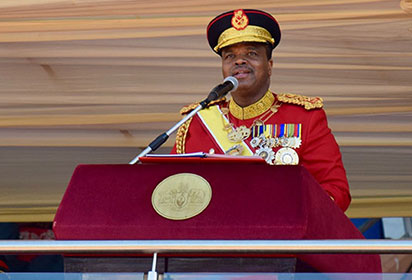I went to Swaziland and came back from eSwatini; that certainly wasn’t planned. In fact, Swaziland existed for just 24 hours after my arrival on 18 April 2018.
This year, the country formerly known as the Kingdom of Swaziland is celebrating 50 years of independence. It also happens to be King Mswati III’s 50th birthday, which is fitting given that he is considered the embodiment of the nation. Along with the Queen Mother, Ndlovukazi (Great She Elephant), Mswati III has ruled since the death of his father in 1982. Although his rule has its excesses – not least his 20+ royal residences and almost as many wives – he is generally well liked and respected by the Swazi people.
The 50:50 celebrations – the golden jubilee for king and country – was scheduled for 19 April, and I was fortunate enough to be invited to join the foreign press corps. Short of being a VIP, there was no better way to get a front-row seat for the pomp and circumstance.
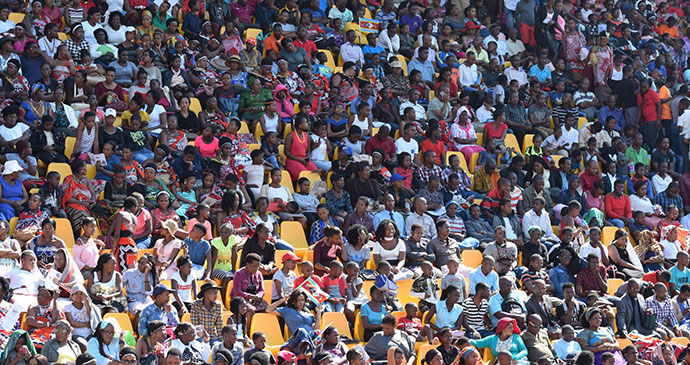
The venue was the Mavuso Trade and Exhibition Centre near Mbabane, which doubles as an athletics stadium. Protocol dictates that the king never announces his arrival time, so there was a general air of anticipation in the grounds as we waited.
The TV crews, including one immaculately attired cameraman in traditional tribal dress, were broadcasting live across the nation, and the stands were packed with colourful crowds. Those who couldn’t get into the grounds thronged around the gates, watching proceedings on huge screens.
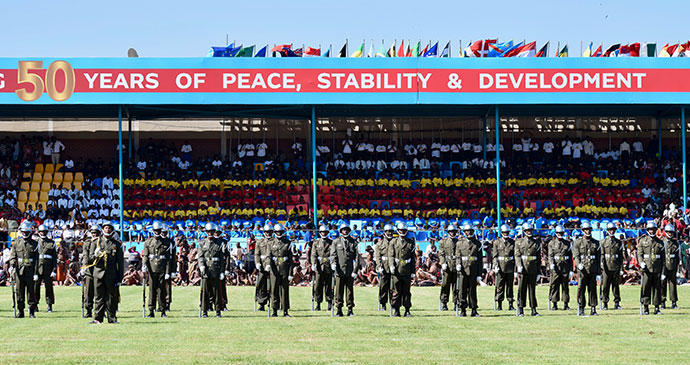
In the centre of the stadium, soldiers in immaculate khaki and silver dress uniforms stood in a grid formation, no doubt sweltering in the heat of the sun. They were replaced by marching brass bands and majorettes, whose furry hats imitated those of the soldiers at Buckingham Palace.
Finally, Mswati III appeared in the royal box. To one side was the 50:50’s guest of honour, the President of Taiwan, and to the other the Queen Mother. I had hoped to see the king in his traditional warrior attire, as he is so often pictured in official photographs, but on this occasion he was wearing a dress uniform: a crimson red jacket, gold epaulettes and sash, and plenty of commemorative medals.
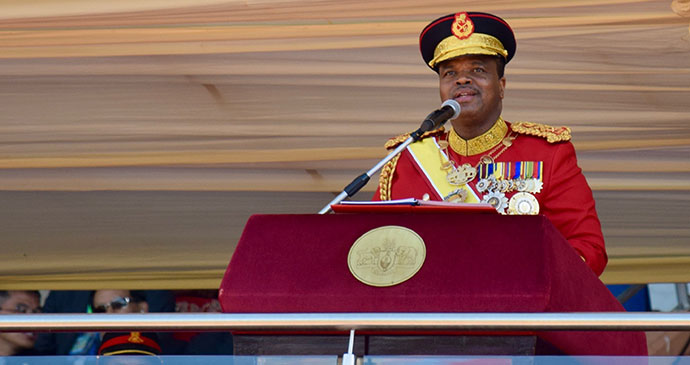
The king is bilingual in siSwati and English as he was educated at an English public school. English is an official language and a key part of the Swazi curriculum. I was intrigued, however, that in spite of his distinctive western attire, he chose to address his people entirely in siSwati, breaking periodically for interpreters to repeat his message in English and in sign language.
Swaziland – the name given to the country by the British – would be no more.
But as the speech unfolded, the reasoning became clear: nationalism. He spoke slowly, steadily, about his vision for Swaziland to become a First World nation. And then, with obvious gravitas, he said something which caused the crowds to erupt into cheers. I had to wait a minute or so for the translation: with immediate effect, Swaziland – the name given to the country by the British – would be no more. Mswati III was officially reviving eSwatini, the older name used by the Swazis.
Rhodesia had become Zimbabwe, Nyasaland had become Malawi, and now, 50 years after independence, Swaziland was finally casting off one of the last symbols of imperialism and naming itself in its own tongue. The lowercase ‘e’ is not a typo but a deliberate choice.
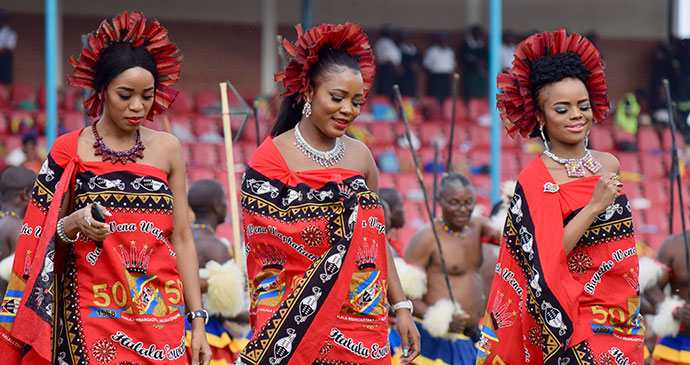
In jubilation, the dancing began in earnest. Wave after wave of singers, dancers and drummers burst forth into the centre of the stadium with an energy which was exhausting to watch. There were school girls in grass skirts in hot pink, bright blue and red; teenage swing dancers with infectious enthusiasm and choirs of matriarchs with powerful voices, each woman draped in a blue flag-like wrap decorated with the 50:50 crest.
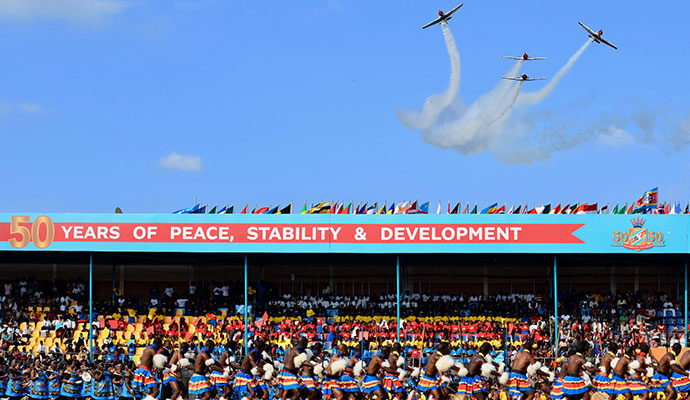
Only the official fly past – four stunt planes performing synchronised acrobatics – could drown out the sound of drums. One of the king’s numerous sons, this one the spitting image of his father, led a legion of warriors in dance, the red feathers in his hair denoting his royal birth. His sisters, glamorous, modern princesses, sashayed en masse out on to the field for a closer view of the spectacle and so that the amassed crowds could admire them.
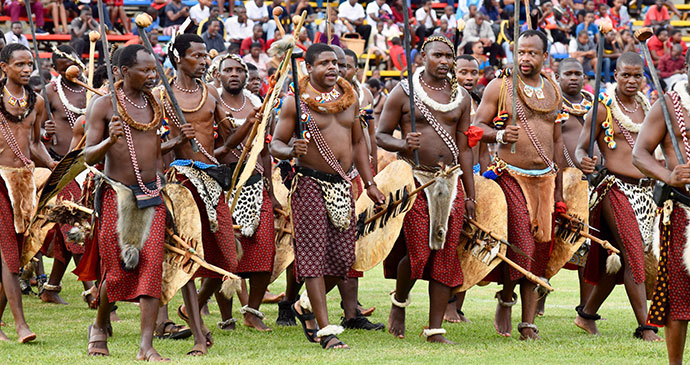
Such exuberant expressions of culture are rare in today’s world. The closest thing it reminded me of was the Opening Ceremony of the Olympic Games. But the Swazis are rightly proud of their heritage, actively celebrating their traditions not for the benefit of tourists but so that they preserve their own identity and enjoy its pleasures.
South African Airways flies direct from London to Johannesburg, from where it is a 3-hour drive to eSwatini (Swaziland).
Africa Exclusive arranges bespoke itineraries across Africa, and a 7-day tour of South Africa and eSwatini starts from £2,233 per person.
The latest tourism information for eSwatini is available from the national tourism board.
For more information on the country’s history and culture, check out our Swaziland guide:

